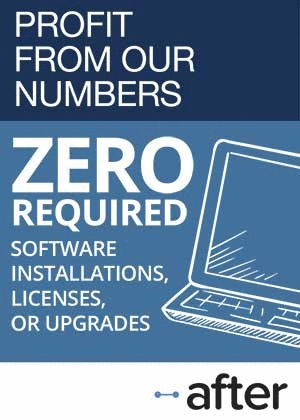October 25, 2012 |

|
ISSN 1550-9214 |
Most Improved Warranty Metrics, Part 2:Warranty expense rates have been on a downward trend for most of the past decade. And most of the manufacturers are reducing their claims and accrual rates year after year. Some, however, continue to cut costs faster than their peers.Among all the warranty providers, most are reducing the percentage of their revenue that's consumed by warranty expenses. But which are reducing their claims and accrual rates the most? And which are doing it over the long term? In the October 11 newsletter we looked at the top 10 improvements in claims and accrual rates from June 2011 to June 2012. But one reader said this was too short a time horizon to pick any leaders. So this week, we're broadening the comparison to compare today's warranty expense rates with those we saw three years ago, six years ago, and nine years ago. The good news is that American manufacturers have not only been reducing their warranty expenses and reporting the figures in their financial reports, but also that they've been reducing those expenses as a percentage of sales from one year to the next. That's a big distinction, because during a deep recession warranty expenses will fall on their own, because there's less business activity all around. The question is whether or not they snap back to where they were once that recession ends. So far, that hasn't happened. Warranty expenses are once again on the rise in 2012, but they're not back to 2007-2008 levels, although in many cases sales are. The result is that American manufacturers are paying out the smallest share of sales revenue ever measured -- roughly 1.3% -- to cover warranty costs. And that's a multi-year trend that began long before the recession. Downward Trend in CostsIn the figure below, we've totaled up all the claims paid and accruals made by all reporting manufacturers, and divided the totals by the amount of product revenue reported by these same companies, during each of the past 38 quarters. Figure 1 |
||||||||||||||||||||||||||||||||||||||||||||||||||||||||||||||||||||||||||||||||||||||||||||||||||||||||
| Claims | Claims | Claims | |
| Rate | Rate | Rate | |
| Company | June 2009 | June 2012 | Reduction |
| Nvidia Corp. | 5.8% | 0.33% | -5.5% |
| LSI Corp. | 0.65% | 0.08% | -0.57% |
| Cymer Inc. | 4.4% | 0.77% | -3.6% |
| BorgWarner Inc. | 1.7% | 0.44% | -1.3% |
| SanDisk Corp. | 1.5% | 0.38% | -1.1% |
| Cavco Industries | 9.5% | 2.6% | -7.0% |
| Paccar Inc. | 4.9% | 1.3% | -3.6% |
| Winnebago Industries | 3.7% | 1.0% | -2.7% |
| MTS Systems | 3.5% | 1.0% | -2.5% |
| Newport Corp. | 2.0% | 0.56% | -1.4% |
Source: Warranty Week from SEC data
Some of these claims rate reductions are just enormous. For instance, Nvidia, which was in the midst of a warranty excursion three years ago, cut its claims rate from 5.8% then to 0.33% now. A total of 46 companies cut their claims rate by half or more during the past three years, including all of our top 10.
It would be easy to pin all these massive claims rate reductions on the recession, but it's not all due to sales. Only three of the top 10 are from the automotive industry, and only one is a homebuilder. As we've found in previous newsletters, these were the industries in which sales decreased the most. Yet five of the top 10 are high-tech and one is aerospace, where revenues fell much less steeply.
And then there are all the massive cost reductions that didn't make the list. Mohawk Industries Inc. cut its claims rate from 6.2% in 2009 to 2.0% in 2012, but didn't make the top 10. Brooks Automation Inc. cut its claims rate from 8.1% three years ago to 2.7% now, but didn't make the list. Caterpillar cut its claims rate from 3.6% to 1.4% Cummins Inc. cut its claims rate from 5.0% to 2.2%. And neither made the list above.
Making Multiple Lists
Of the 10 companies listed in Figure 2, four repeated on the accrual list in Figure 3. That means these four companies cut their warranty expenses by the greatest proportion from 2009 until 2012. And that means either they were having a very bad 2009 or a very good 2012, or a combination of both.
But as we've suggested, warranty cost-cutting is a widespread trend. Of our 225 large and medium-sized companies under consideration, 161 reduced their claims rates from 2009 to 2012 and 135 reduced their accrual rate. An incredible 118 reduced both rates over the past three years.
What makes this incredible is that accrual rates aren't usually affected by changes in sales volumes. The amount accrued is supposed to be a fixed number per unit sold, based on the predicted frequency and cost of repairs under warranty. But no sales means no accruals. The ratio between accruals and sales should remain the same, unless there's been a change in reliability or repair cost.
So while Figure 2 was heavily impacted by the depths of the recession in 2009, Figure 3 should be measuring changes in reliability or repair cost. There might be other reasons that companies cut their accrual rates so drastically, but sales isn't one of them.
The four companies that repeated are LSI Corp.; MTS Systems; Newport Corp.; and SanDisk Corp. None are automotive or homebuilding companies, so there must be some other reason why they are among the most successful warranty cost-cutters of the past four years. Also, none are coming down from unusually high expense rates in 2009, as are Cavco Industries, Nvidia, and Garmin. So their success can't be dismissed as merely a return to normal after a period of low sales or high costs.
Figure 3
Top U.S.-based Warranty Providers:
Top Ten Accrual Rate Reductions,
June 2012 vs. June 2009
(accruals as a % of revenue)
| Accrual | Accrual | Accrual | |
| Rate | Rate | Rate | |
| Company | June 2009 | June 2012 | Reduction |
| Lear Corp. | 0.16% | 0.003% | -0.16% |
| LSI Corp. | 0.81% | 0.07% | -0.74% |
| MTS Systems | 2.9% | 0.33% | -2.6% |
| SanDisk Corp. | 1.8% | 0.33% | -1.5% |
| Boston Scientific | 0.24% | 0.05% | -0.19% |
| Garmin Ltd. | 4.6% | 1.1% | -3.5% |
| Broadcom Corp. | 0.22% | 0.05% | -0.17% |
| Harris Corp. | 1.5% | 0.42% | -1.1% |
| Newport Corp. | 1.4% | 0.42% | -1.0% |
| MDC Holdings | 1.0% | 0.34% | -0.67% |
Source: Warranty Week from SEC data
Lear is on the top 10 accrual reduction list simply because it has made only $200,000 in accruals so far this year on more than $7.3 billion in product sales. That's an accrual rate of only 0.003%. But that's also an artificially low amount -- and one which is not sustainable. Pretty soon, it will be back into the millions.
During the same period in 2009, Lear made $7.2 million in accruals on $4.5 billion in sales. So its accrual rate has plummeted from 0.16% to 0.003% -- an incredible 98% reduction. But that has more to do with the abnormally low accruals in 2012 than any real improvement in product reliability. And although it makes all the comparisons look good, it's unlikely to be repeated.
Meanwhile, Garmin had a really bad 2009, with its claims rate soaring to 9.7% at one point early in the year and its accrual rate remaining high the entire year. Now it's getting back to normal, with its accrual rate below two percent for the first time in six years. So the comparison between 2009 and 2012 looks very favorable.
Massive Savings, But Not Top 10
All 10 of the companies in Figure 3 reduced their accrual rates by more than half over the past three years, as did 14 others who didn't make the top 10 list. Some of the largest among those nearly great companies are Seagate Technology; Terex Corp.; TRW Automotive Holdings Corp.; and Polaris Industries Inc.
Seagate recently reduced the duration of some of its warranties, so accruals were reduced accordingly. But the other three are automotive and heavy equipment companies whose warranty terms and conditions haven't changed all that much, so the reasons behind their accrual rate reductions are less obvious.
Because of the four repeats, there are only 16 different companies in Figures 2 and 3. But of those 16, an amazing seven were also in a one-year top 10 list in the October 11 newsletter. And eight of these 16 will be on one of the top 10 lists in next week's newsletter.
In other words, while some of the companies with the biggest one-year rate changes are simply lucky to be there (or were unlucky a year ago), many others are consistent cost-cutters that have been reducing their warranty expenses year after year. They're on the list for 2009-2012 and 2011-2012. And they'll be on the list again for 2003-2012 and 2006-2012. That's the only way the overall averages, as seen in Figure 1, can continue to fall year after year.
Next week: The six-year and nine-year comparisons.

|
This Week’s Warranty Week Headlines | ||
|
Alberta proposal makes builders provide warranties for new homes. CBC News, October 25, 2012 | ||
|
New legislation to give new home buyers in Alberta more warranty protection. CTV News, October 25, 2012 | ||
|
Verizon uses warranty-voiding photo to sell Total Equipment Coverage Plan. The Consumerist, October 25, 2012 | ||
|
North Little Rock mayor says sewer line solicitation letter not from him. Arkansas Business, October 24, 2012 | ||
|
Sky employee leaked customer data to a competing warranty company. Information Age, October 24, 2012 | ||
More Warranty Headlines below | ||

|
Warranty Headlines (cont’d) | ||
|
Businesses should explain warranties better, says legal expert. Pinsent Masons LLP, October 23, 2012 | ||
|
Satcon gets bankruptcy court approval to continue paying warranty claims. Press Release, October 23, 2012 | ||
|
Richard Edward Mace joins ServicePower board of directors. Stock Market Wire, October 22, 2012 | ||
|
Former Circuit City CEO Alan Wurtzel writes tell-all book. This Week in Consumer Electronics, October 22, 2012 | ||
|
Hyundai covers Equus & Rohens models with 5-year warranty in China. China Daily, October 22, 2012 | ||
More Warranty Headlines below | ||

|
Warranty Headlines (cont’d) | ||
|
Dunster House reduces RV warranty coverage and pulls out of UK trade show. Caravan Times, October 19, 2012 | ||
|
Beware of engine additive warranty scam. WKYT-TV Lexington KY, October 19, 2012 | ||
|
List of companies selling extended warranties for vehicles in Canada. Toronto Star, October 19, 2012 | ||
|
Microsoft offers only 1-year Surface warranty despite EU law. ZDNet, October 19, 2012 | ||
|
Why things fail: From tires to helicopter blades, everything breaks eventually. Wired Magazine, October 19, 2012 | ||
More Warranty Headlines below | ||

|
Warranty Headlines (cont’d) | ||
|
Sewer line protection program now available in Casper WY. Casper (WY) Journal, October 18, 2012 | ||
|
Global Warranty Group offers free roadside assistance dispatch to wireless customers. Press Release, October 18, 2012 | ||
|
Rooting and flashing a mobile device does not void its EU warranty. Hook's Humble Homepage, October 18, 2012 | ||
|
Microsoft Surface tablet's one year UK warranty flouts EU laws. The Inquirer, October 18, 2012 | ||
|
How to turn warranty expirations into increased service revenue. Dealer Marketing Magazine, October 17, 2012 | ||
More Warranty Headlines below | ||
|
|
Warranty Headlines (cont’d) | ||
|
World Diamond Congress rejects Diamond Source Warranty Protocol. International Diamond Exchange, October 17, 2012 | ||
|
Microsoft offers 2-year Surface RT tablet warranty in Australia. PC World Australia, October 17, 2012 | ||
|
Australian Competition and Consumer Commission opens HP warranty probe. Press Release, October 16, 2012 | ||
|
Diamond Source Warranty Protocol called too costly & impractical. International Diamond Exchange, October 15, 2012 | ||
|
Jewelry associations develop the Diamond Source Warranty Protocol. Press Release, October 15, 2012 (PDF file) | ||
More Warranty Headlines below | ||

|
Related Articles From Warranty Week |



